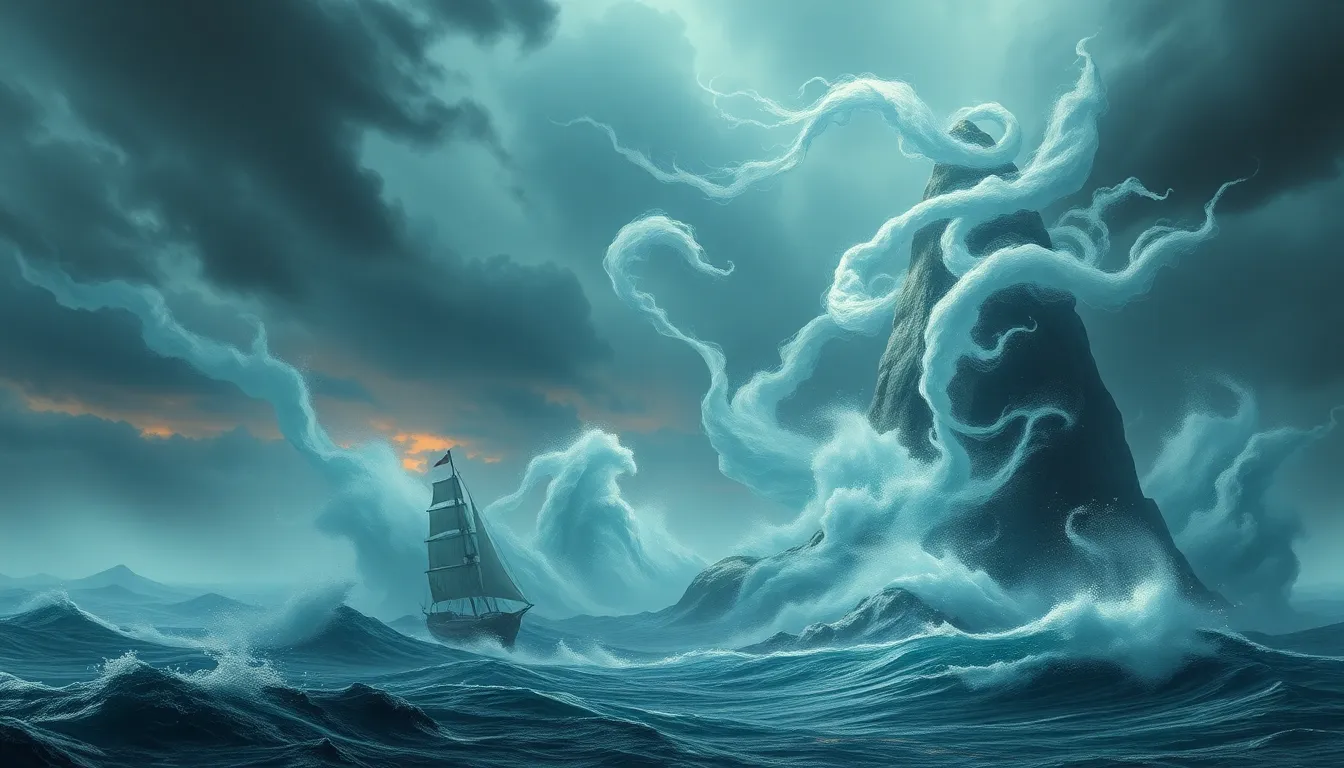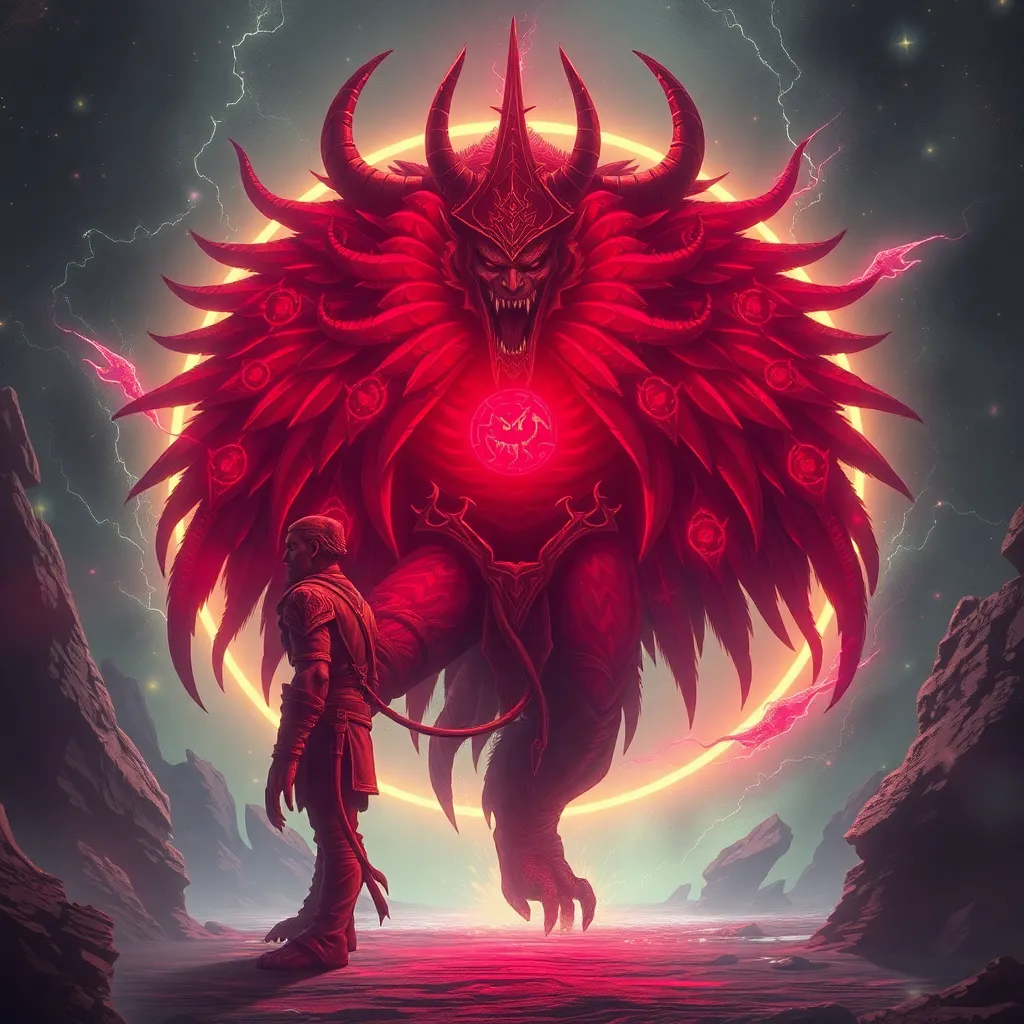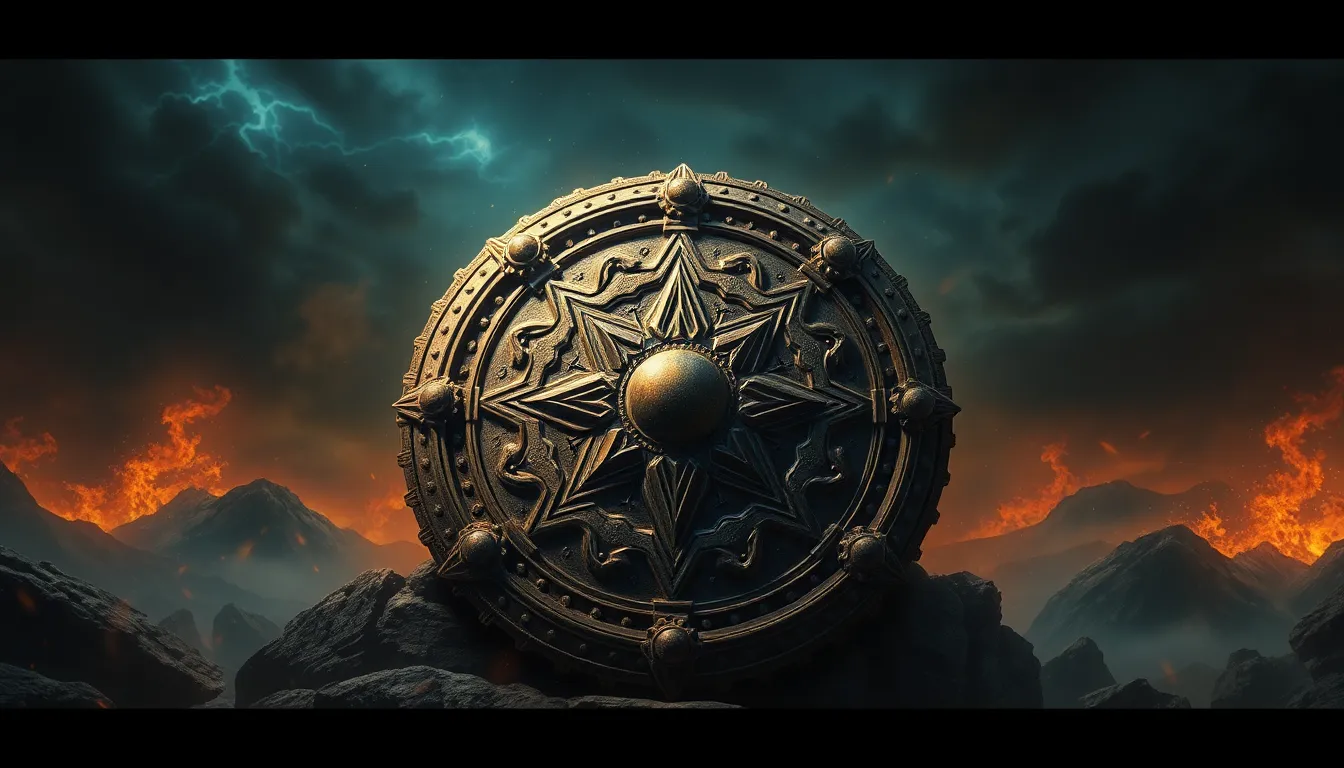The Isle of Winds: Myths of Aeolus and the Stormy Seas
1. Introduction to Aeolus: The Keeper of the Winds
Aeolus, known as the Keeper of the Winds in Greek mythology, plays a crucial role in the narratives surrounding the sea and navigation. He is often depicted as a ruler of the winds, possessing the power to either calm the seas or unleash violent storms. This duality reflects the ancient Greeks’ profound respect for the unpredictable nature of the sea, which was both a source of sustenance and a perilous threat.
The significance of winds in ancient maritime culture cannot be overstated. For sailors, favorable winds meant safe passage and prosperous trade, while unfavorable winds could lead to disaster. As such, Aeolus embodied not just the physical winds but also the hopes and fears of those who traversed the tumultuous waters of the Mediterranean.
2. The Geographic and Mythical Landscape of the Isle of Winds
The Isle of Winds, often identified with the mythical island of Aeolia, is described in various mythological texts as a place where the winds are contained and controlled. It is said to be a floating island, surrounded by turbulent seas, reflecting the chaotic nature of the world beyond its shores.
In ancient Greek mythology, islands often symbolize both isolation and refuge. They serve as places of transformation, where heroes confront their destinies. The Isle of Winds, governed by Aeolus, represents a liminal space between human endeavor and divine intervention, where the forces of nature are personified and held in check.
3. The Role of Aeolus in the Odyssey
In Homer’s epic, “The Odyssey,” Odysseus encounters Aeolus during his journey home from the Trojan War. Aeolus gifts Odysseus a bag containing all the winds, instructing him to release them only when he is safely home. However, his crew, mistaking the bag for treasure, opens it, unleashing a storm that blows them off course.
This encounter highlights key themes of fate and divine intervention. Despite Aeolus’s goodwill, human error leads to chaos. The episode serves as a reminder of the delicate balance between human agency and the uncontrollable forces of nature, emphasizing how easily fortune can turn.
4. The Nature of Winds in Greek Mythology
Various winds are personified in Greek mythology, each with distinct characteristics and domains:
- Boreas: The North Wind, often associated with cold and winter.
- Notus: The South Wind, linked to storms and the end of summer.
- Zephyrus: The West Wind, known for bringing gentle breezes.
- Eurus: The East Wind, often depicted as unpredictable.
The cultural importance of these wind deities underscores the ancient Greeks’ understanding of weather patterns and their reliance on winds for agriculture, trade, and warfare. Each wind represented not just a meteorological phenomenon but also a force to be revered and feared.
5. The Concept of Chaos and Order in Stormy Seas
Storms are depicted in myths and literature as manifestations of chaos, often reflecting the tumultuous nature of life and the unpredictability of fate. In contrast, Aeolus symbolizes order, as he possesses the ability to control and regulate the winds.
This relationship between chaos and order is prevalent in many myths, where divine beings intervene to restore balance. The chaotic storms signify challenges and adversities that heroes must face, while Aeolus embodies the hope for calm and guidance amidst life’s tempests.
6. Aeolus’s Influence on Maritime Navigation
The historical context of sailing and navigation in ancient Greece reveals how myths like that of Aeolus shaped sailors’ perceptions of the sea. During the age of exploration, sailors relied heavily on their understanding of winds and weather patterns to navigate treacherous waters.
Myths influenced practical aspects of navigation in several ways:
- Worship of Aeolus: Sailors would offer prayers and sacrifices to Aeolus, seeking favorable winds.
- Navigation Techniques:</ Knowledge of wind patterns was essential for safe passage and trade.
- Mythical Caution: Stories of Aeolus served as warnings of the dangers posed by the sea.
Thus, Aeolus became not just a character in mythology, but a vital figure in the daily lives of ancient mariners.
7. Parallel Myths from Other Cultures
The concept of wind gods is not unique to Greek mythology. Other cultures have their own deities that embody similar characteristics:
- Njord: In Norse mythology, Njord is the god of the sea and winds, associated with prosperity and maritime success.
- Fūjin: In Japanese mythology, Fūjin is the god of wind, often depicted carrying a bag of winds.
- Horus: In Egyptian mythology, the god Horus is associated with the sky and winds, symbolizing protection and power.
The universal symbolism of winds and storms across cultures highlights a shared human experience, reflecting our relationship with nature and the forces beyond our control.
8. The Legacy of Aeolus in Art and Literature
Aeolus’s representation in classical art and poetry is vast, often depicted in sculptures, pottery, and paintings. Artists have captured his essence as a powerful deity who commands the winds, symbolizing both chaos and order.
Modern interpretations of Aeolus continue to resonate, appearing in literature and popular culture. His character often serves as a metaphor for the unpredictable forces of nature and the human struggle against them, reflecting contemporary themes of environmentalism and the human condition.
9. Scientific Perspectives on Winds and Storms
A brief overview of meteorological principles reveals that winds are caused by differences in atmospheric pressure, influenced by the Earth’s rotation and the sun’s heating. Understanding these principles allows us to appreciate the complexity of weather phenomena that ancient myths sought to explain.
The reflection of early understandings in myths illustrates humanity’s attempt to make sense of the natural world. As science has advanced, the once-mysterious forces of nature have become more comprehensible, yet the awe inspired by storms and winds remains.
10. Conclusion: The Enduring Power of Myths and Nature
The legacy of Aeolus and the Isle of Winds continues to resonate today, reminding us of the enduring power of myths to explain and give meaning to our experiences with nature. As we face the realities of climate change and extreme weather events, the stories of Aeolus serve as a poignant reminder of humanity’s vulnerability and the need for respect towards the natural world.
Mythology remains a source of fascination, bridging the gap between ancient beliefs and contemporary understanding. The tales of gods like Aeolus encourage us to reflect on our relationship with nature and the timeless themes of chaos, order, and the human experience.




